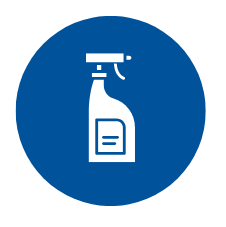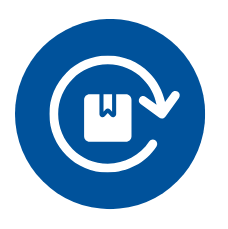ACI Policy Priorities
The American Cleaning Institute is the Home of the U.S. Cleaning Products Industry and represents the $60 billion U.S. cleaning product supply chain. ACI members include the manufacturers and formulators of soaps, detergents, and general cleaning products used in household, commercial, industrial and institutional settings; companies that supply ingredients and finished packaging for these products; and chemical distributors.
ACI serves the growth and innovation of the U.S. cleaning products industry by advancing the health and quality of life of people and protecting our planet. ACI achieves this through a continuous commitment to sound science and being a credible voice for the cleaning products industry.
Learn About ACI's Policy Priorities:
-
Federal

New Chemicals
ACI recognizes that the EPA has not implemented the Toxic Substances Control Act (TSCA) statute as intended by Congress. ACI believes the EPA should abide by the TSCA statute and complete Pre-Manufacture Notice (PMN) new chemical reviews predictably and within the required 90 to 180-day deadline. Additionally, the EPA should conduct PMN reviews within a submitter’s conditions of use when determining risks to human and environmental health.

Taxes
The Tax Cuts and Jobs Act (TCJA) of 2017 codified many critical tax provisions that expire at the end of 2025. ACI supports efforts to preserve the TCJA’s tax policies to ensure the U.S. cleaning products industry maintains global competitiveness and a conducive business environment to support innovation, good-paying jobs, and affordable and safe cleaning products for families and businesses.

Safer Choice program
The EPA’s Safer Choice program is voluntary and allows companies that make products that meet the Safer Choice Standard to carry a Safer Choice label, which signifies a higher standard in safety and sustainability for consumer awareness. ACI supports Safer Choice and recommends that Congress and the Administration retain the successful program.

Recycling
ACI supports congressional efforts to improve the state of recycling data collection and infrastructure and recommends that Congress pass the Recycling Infrastructure and Accessibility Act (RIAA) and the Recycling and Composting Accountability Act (RCAA) to do so. Both bills passed the Senate in March 2024 and would improve recycling accessibility, particularly for rural and historically disadvantaged areas.

Packaging Labeling
ACI supports up-to-date, accurate, and easily accessible ingredient information on product packages to help consumers make the best choices on cleaning products tailored to their respective needs. ACI also supports efforts to require package labeling to include ‘Do-Not-Flush’ labels as a preventative measure to flushing non-flushable wipes and negative impacts on sewage infrastructure.

Extended Producer Responsibility
ACI supports achievable and effective extended producer responsibility (EPR) programs. These programs should be developed after comprehensive needs assessments, with goals established by a producer responsibility organization (PRO) and cost-sharing across all aspects of the recycling value change.

Microplastics
All plastics are polymers but not all polymers are plastic. There are biodegradable polymers that do not contribute to plastic pollution. When addressing microplastic legislation, the proper definition of microplastic needs to be used, and source studies should be conducted before more complex policies.

1,4-Dioxane
The goal of policies involving 1,4-dioxane should ensure that safe levels of exposure to consumers and workers are based on sound science. Additionally, policies and methods regulating 1,4-dioxane should be harmonized across jurisdictions and ensure a uniform market for consumers nationwide. ACI continues to work to gather and provide data to EPA to help reduce data gaps and uncertainties related to 1,4-dioxane.
-
State

Extended Producer Responsibility
ACI is supportive of achievable and effective extended producer responsibility (EPR) programs. Programs should be developed after comprehensive needs assessments are completed, with goals established by a producer responsibility organization (PRO), and with cost sharing across all aspects of the recycling value chain.

Microplastics
All plastics are polymers but not all polymers are plastic. There are biodegradable polymers that do not contribute to plastic pollution. When addressing microplastics, an appropriate definition of microplastic needs to be used and source studies should be conducted to better understand what is contributing to the problem. ACI supports efforts to eliminate microplastic pollution from cleaning products while ensuring these products and their packaging maintain their essential functions.

Chemical Management
ACI believes that chemical policy should be implemented by experts with the knowledge and resources available to understand the complexity of the chemistry at hand. One-off chemical bans without adequate research on their toxicity and use fall short of more holistic policy goals. ACI seeks to be a valuable resource to lawmakers by providing scientific evidence supporting the safety of our members’ products.

1,4-Dioxane
The goal of policies involving 1,4-dioxane should ensure that safe levels of exposure to consumers and manufacturers is based upon sound science. States should seek to harmonize their policies to ease the burden on manufacturers and ensure a uniform market for consumers across states. ACI members continue to comply with New York’s limitation of 1ppm in cleaning products and manufacturers continue to invest in methods to reduce 1,4-dioxane concentrations in finished goods through reformulations and innovation research and development.